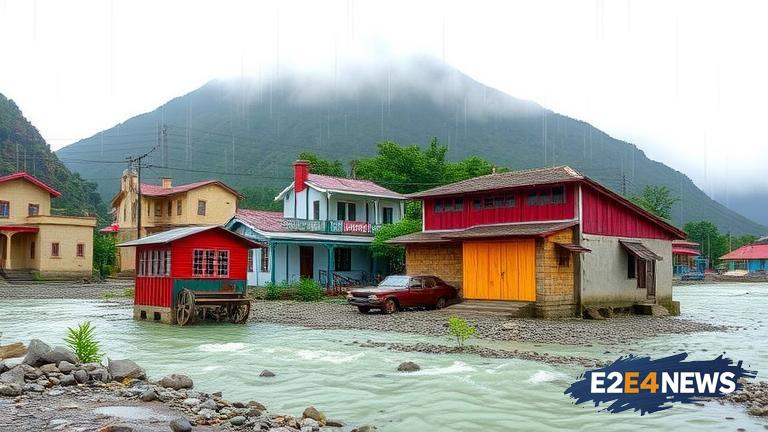The Gilgit-Baltistan region in Pakistan has been severely affected by recent rain and flash floods, resulting in losses of over Rs20 billion. The region’s government has sought assistance from the federal government to help recover from the devastating disaster. The floods have caused widespread destruction, including damage to infrastructure, homes, and crops. The region’s economy has also been severely impacted, with many businesses and industries affected. The government has announced plans to provide relief to affected families and individuals, including financial assistance and provision of essential items. The disaster has also highlighted the need for improved disaster management and preparedness in the region. The federal government has been urged to provide additional funding and resources to support the relief efforts. The affected communities are in dire need of assistance, and the government’s response will be crucial in determining the speed and effectiveness of the recovery efforts. The floods have also raised concerns about the region’s vulnerability to climate change and the need for sustainable development practices. The government has been criticized for its slow response to the disaster, and there are calls for greater accountability and transparency in the relief efforts. The international community has also been urged to provide assistance to support the relief efforts. The floods have caused significant damage to the region’s infrastructure, including roads, bridges, and buildings. The agricultural sector has also been severely impacted, with many crops destroyed and livestock affected. The region’s tourism industry has also been affected, with many tourist destinations and attractions damaged or destroyed. The government has announced plans to establish a relief fund to support the affected communities, and donations are being sought from individuals and organizations. The relief efforts are being coordinated by the National Disaster Management Authority (NDMA), which is working closely with provincial and local authorities. The NDMA has also established a control room to monitor the situation and coordinate the relief efforts. The government has also deployed troops to assist with the relief efforts, including rescue and evacuation operations. The floods have also raised concerns about the region’s water management practices, and there are calls for greater investment in flood protection measures. The disaster has also highlighted the need for improved early warning systems and emergency preparedness measures. The government has announced plans to conduct a thorough assessment of the damage and losses, and to develop a comprehensive plan for the recovery and rehabilitation of the affected communities. The international community has also been urged to provide technical assistance and support to help the region recover from the disaster.
